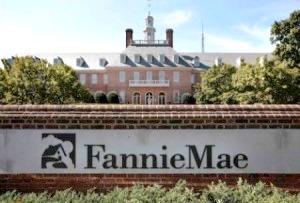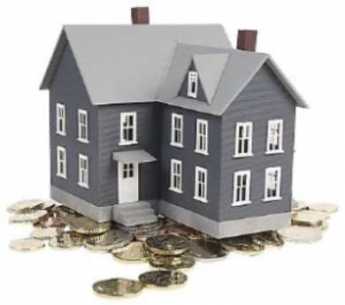Related Topics
Personal Finance
The rules of financial health are simple, but remarkably hard to follow. Be frugal in order to save, use your savings to buy the whole market not parts of it, if this system ain't broke, don't fix it. And don't underestimate your longevity.
Dislocations: Financial and Fundamental
The crash of 2007 was more than a bank panic. Thirty years of excessive borrowing had reached a point where something was certain to topple it. Alan Greenspan deplored "irrational exuberance" in 1996, but only in 2007 did everybody try to get out the door at the same time. The crash announced the switch to deleveraging, it did not cause it.
Whither, Federal Reserve? (2)After Our Crash
Whither, Federal Reserve? (2)
Securitization: Pass the Hot Potato

|
| Fannie Mae Corp. |
It would be pardonable to say that since securitization of home mortgages is a generally good thing, we might overlook any minor differences in approach between Fannie Mae (FNMA) and CDOs (Collateralized Debt Obligations), and let the customers decide which approach is preferred. Unfortunately, they both encompass a fatal flaw that has somehow escaped adequate notice. As mortgages pass from one holder to the next in sequence, both the buyer and seller seek to avoid the worst-risk mortgages and retain for themselves the best-risk ones. Get stuck with too many bad-risk properties, and you will go broke. When the credit markets suddenly woke up to this reality in August 2007, it was impossible to know who was holding good stuff and who was holding toxic mortgages. The markets "froze", which is to say most traders just walked away from participation until the situation clarified.

|
| Rising house prices |
Furthermore, with existing systems this seems to be something that will inevitably happen. A small-town bank tries to sell every mortgage it originates to an aggregator, but a few mortgages just aren't salable. The small town bank might well be able to sell mortgages to people who can't afford a house, but the aggregator is wise to the world, and won't buy the worst of them, so they silt up in the hands of the originating bank. Some originating banks may be deft enough to hold on to the very best risks and sell the rest, but a lot of banks will be turned away by dealers who are smarter than they are. At every step in the chain, there will be the same contest, so eventually, everybody comes under suspicion. Add to this trap the irony that an environment of rising house prices simply increases the size of the defaults when the pyramid finally topples, and it may temporarily blind everyone to the risks being run, thus making it all worse. Somehow or other, the average down payment on the mortgages you hold must be larger than the average drop of house prices in a slump, else you will be transferring the risk from the homeowner to yourself. A strong case can be made that the fault in the recent crash was not predatory lending; it was a failure to demand adequate down payments.

|
| Bear Stearns |
However you define an "adequate" down payment, it is clear that the recent rise of house prices particularly in the regions of greatest overbuilding, put a conventional 20% down payment completely out of reach of many first-home buyers. Since house prices have declined 20% and may decline 20% more, a determination of lenders not to lend more than 80% would have prevented a lot of overbuilding. If mortgage aggregators had refused to purchase mortgages that lacked an adequate down payment, the originating banks would soon have stopped issuing them. Consequently, the necessary fortitude should have been applied at the last step before securitization. It's possible to believe the people at Bear Stearns now wish they had done so.
If we then turn to the GSEs, the significant extra risk of Fannie Mae is political. Holding $5 trillion of debt more or less guaranteed by the U.S. Government, the Secretary of the Treasury repeatedly told congressional hearings that assuming its default would double the national debt. Double the national debt is what is meant by being "too big to be allowed to fail." Since this appalling situation willy-nilly relieves Fannie Mae of any worry about collapsing, the only way to force Fannie Mae to insist on adequate down payments is by Congress passing a law that they must. Congress seems to lack the political will to pass such rules in an election year, or probably any other year. The mandate for fifty years has been for Fannie Mae to make housing "affordable" and keep homeowners from losing their homes. It would be an unimaginable tragedy if Congress ran away from this dilemma, and accepted the hyper-inflation which would result from suddenly doubling the national debt. Unimaginable, but likely.
Originally published: Tuesday, July 22, 2008; most-recently modified: Sunday, July 21, 2019